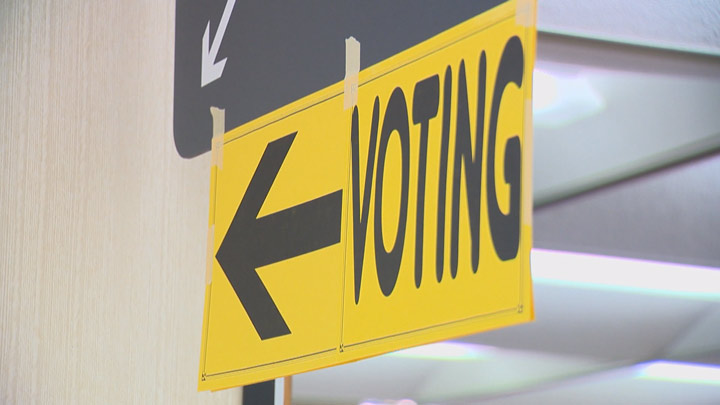Returning officers in Saskatchewan are beginning to recruit what the province’s elections agency expects to be thousands more volunteer workers needed to work the polls during October’s pandemic vote.

Chief Electoral Officer Michael Boda with Elections Saskatchewan said the number of polling locations have been dramatically increased to meet safety requirements for casting ballots during the COVID-19 health crisis.
“Our standards are as high and higher than at the local grocery store,” he said in a recent interview.
Premier Scott Moe has yet to officially call the election, already set for Oct. 26, but he must do so within the next week.
The agency’s plan has been reviewed by the province’s chief medical health officer, Dr. Saqib Shahab. Boda wants to almost double the number of polling locations from the last election to spread them out and allow for more physical distancing.
For the 2016 vote, there were about 1,100 locations across the province staffed by 13,000 workers, Boda said. This time around, plans are for a little more than 2,000 polling locations with between 15,000 to possibly 17,000 workers.
“Just like there are voters, there’ll be workers who are immunocompromised or they feel there’s a health risk,” Boda said.
- Canadian man dies during Texas Ironman event. His widow wants answers as to why
- ‘Shock and disbelief’ after Manitoba school trustee’s Indigenous comments
- Several baby products have been recalled by Health Canada. Here’s the list
- ‘Sciatica was gone’: hospital performs robot-assisted spinal surgery in Canadian first
“I have been receiving emails from them and I get it.”
As of Wednesday, Saskatchewan was reporting six new cases and 133 active infections.
Shahab has attributed a slight rise in cases to people violating a 30-person gathering limit he put in place to reduce spread of the novel coronavirus.
The Ministry of Health has said Saskatchewan’s COVID-19 infection rate is still lower than other provinces currently experiencing a spike. But September is a critical time as more people head indoors because of cooler weather and schools reopening.
Boda is encouraging people 16 and older to become election workers. He wants to replace older volunteers and other regulars who are not feeling comfortable about working during the pandemic.
Adjustments can be made if the agency doesn’t recruit enough people, Boda said. And mail-in ballots as well as five days of advanced voting will help reduce pressures on election day.
But it still will be problematic if we don’t have the people to do this.”
Boda also about 15,000 applications have come in from people who want to vote by mail in the election.
That’s already more than three times higher than in 2016, when about one per cent of residents — mostly students, snowbirds and people living outside of their constituencies — took advantage of absentee voting, he said.
Elections Saskatchewan has been studying Wisconsin, South Korea and Australia to see how COVID-19 affected electoral processes there.
Last week’s provincial election in New Brunswick saw a shift in how people voted, said Boda.
More people opted for special ballots, including mail-in voting and visiting ballot boxes in advanced polls. Voting on election day was down 17 per cent compared with the province’s 2018 vote, he said.
Candidates for both the governing Saskatchewan Party and Opposition NDP have been out door-knocking while wearing masks and practising phyiscal distancing at pre-campaign announcements.
Premier Scott Moe said he believes a safe election can be delivered.
Last week, he was absent from a news conference in Ottawa with premiers Jason Kenney, Brian Pallister and Doug Ford, where they called on the federal government to boost health transfers to provinces ahead of the throne speech.
Moe said he felt he should go as chair of the Council of the Federation, but said those around him thought otherwise because of rising COVID-19 cases and his recent ask of Saskatchewan residents to forgo travel.
“In my mind I should go, despite the fact that I had asked people across this province to not travel unless it is absolutely necessary. I felt this was necessary,” he said an in interview Wednesday.
“My cabinet and caucus colleagues didn’t feel it was, so I took their advice.”

Questions about COVID-19? Here are some things you need to know:
Symptoms can include fever, cough and difficulty breathing — very similar to a cold or flu. Some people can develop a more severe illness. People most at risk of this include older adults and people with severe chronic medical conditions like heart, lung or kidney disease. If you develop symptoms, contact public health authorities.
To prevent the virus from spreading, experts recommend frequent handwashing and coughing into your sleeve. They also recommend minimizing contact with others, staying home as much as possible and maintaining a distance of two metres from other people if you go out. In situations where you can’t keep a safe distance from others, public health officials recommend the use of a non-medical face mask or covering to prevent spreading the respiratory droplets that can carry the virus. In some provinces and municipalities across the country, masks or face coverings are now mandatory in indoor public spaces.
For full COVID-19 coverage from Global News, click here.

Comments